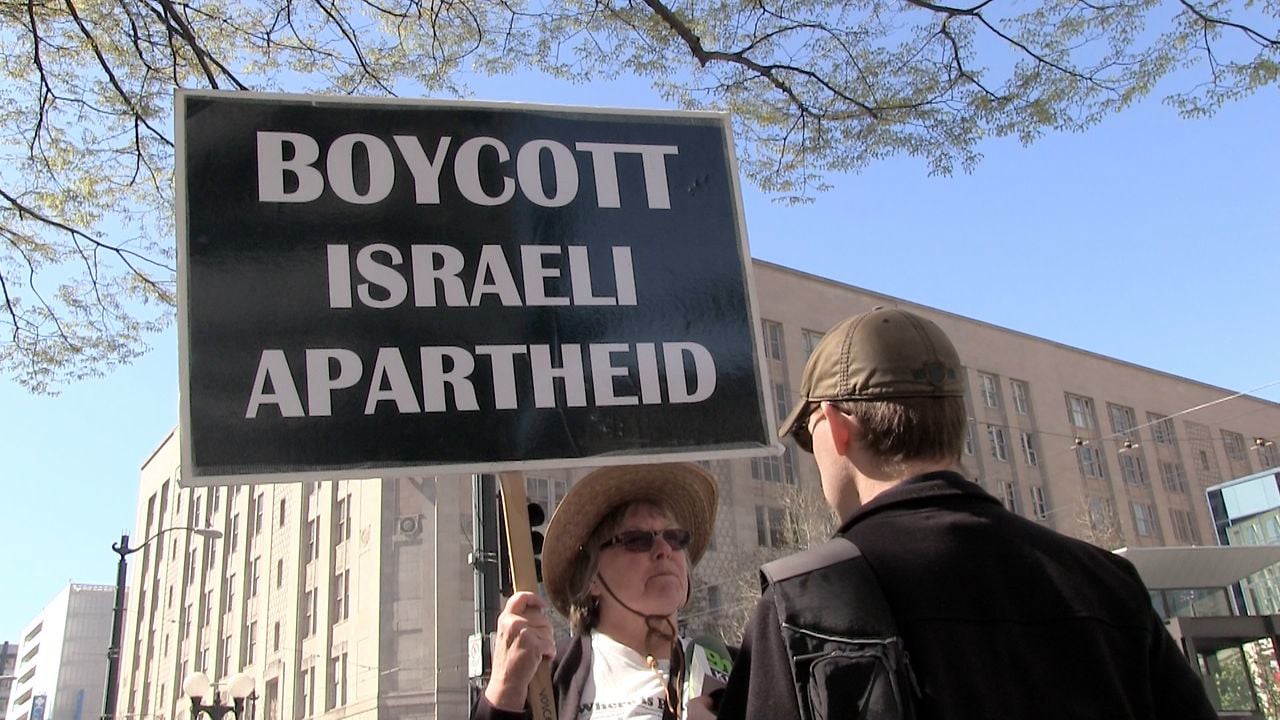The Implementation of the Israeli Anti-BDS Travel Ban
Last March, the Knesset, Israel’s parliament, passed an amendment requiring the interior minister to deny entry to Israel to foreign nationals who “knowingly issued a public call to boycott the state of Israel,” “pledged to participate in said boycott” or act on behalf of a group or an organization that have done so. The amendment was part of the Israeli government’s effort to combat the global BDS (Boycott, Divestment, and Sanctions) movement.

Published by The Lawfare Institute
in Cooperation With

Last March, the Knesset, Israel’s parliament, passed an amendment requiring the interior minister to deny entry to Israel to foreign nationals who “knowingly issued a public call to boycott the state of Israel,” “pledged to participate in said boycott” or act on behalf of a group or an organization that have done so. The amendment was part of the Israeli government’s effort to combat the global BDS (Boycott, Divestment, and Sanctions) movement.
At the time, I explained why the amendment was likely to withstand judicial scrutiny despite concerns that it suppresses political expression and protest. In 2015, the Supreme Court of Israel largely upheld the so-called “Boycott Law,” a 2011 bill that similarly provides for legal and administrative sanctions against those who promote and participate in boycotts over ties to Israel or “an area under its control,”—that is, West Bank settlements. (As a side note, it is interesting to compare this ruling to yesterday’s decision of the U.S. district court for the district of Kansas in Koontz v. Watson. The district court issued a preliminary injunction halting, on First Amendment grounds, the enforcement of a Kansas law requiring all persons who enter into a contract with the State of Kansas to certify that they are not engaged in a boycott against Israel.”)
Seeing as the Israeli Supreme Court affirmed most of the provisions of this law, which applies to Israeli citizens and residents, there is little chance that the courts would find a measure directed primarily at foreigners unconstitutional, especially considering the interior minister’s broad discretion under Israeli law to determine who can lawfully enter Israel’s sovereign territory. As far as I am aware, the amendment has yet to be challenged in court.
In that explanation, I also noted:
Perhaps the more interesting question is whether the amendment actually changes anything in practice. The law now requires the Minister of the Interior not to issue visas and permits to boycott supporters. Until now, the Minister had discretion whether to do so. Will the amendment block more boycott supporters from entering or staying in Israel compared to the number of visa denials before its enactment? Will authorities employ methods they have not used before to identify boycott supporters? If so, will safeguards be put in place to protect the privacy of those seeking visas? The language of the amendment answers none of those questions.
Most of these questions remain difficult to answer in the absence of complete data about denials of entry on grounds of participating in BDS activity. But recent developments provide an opportunity to take stock of the implementation of the BDS travel ban amendment almost one year after it became law.
In early January, Israel’s Strategic Affairs Ministry published a blacklist of 20 organizations—most of which are American or European—whose members are to be denied entry on grounds of involvement in BDS activity. Among the American organizations are the American Friends Service Committee, American Muslims for Palestine, Code Pink, Jewish Voice for Peace, National Students for Justice in Palestine, and the U.S. Campaign for Palestinian Rights. Several individuals have reportedly been denied entry to Israel on BDS grounds so far. The first time Israel denied entry to an individual on this basis was in December 2016, before the amendment was passed: Isabel Phiri, a senior official of the World Council of Churches, was denied entry to Israel for participating in BDS activity. On Tuesday, the interior minister tweeted that he had barred the entry of two Norwegian activists, who came to observe the operations of the Israel Defense Forces in the West Bank, for security reasons. It is not clear whether involvement in BDS played a role in this decision.
Prior to issuing the blacklist, the Israeli Population and Immigration Authority published guidelines for implementing the BDS travel ban. Though the guidelines purport to constrain the category of individuals who would be denied entry, their vagueness leaves room for interpretations that would facilitate a broad application of the ban. An organization must support and promote boycotts targeting Israel “actively and continuously” for the travel ban to apply to its leaders, along with those members of the organization who actively engage in promoting boycotts against Israel. The meaning of “actively and continuously” is highly susceptible to interpretation. The guidelines make clear, however, that “the mere fact that an organization is anti-Israeli or pro-Palestinian, or has an agenda critical of the policy advanced by the government of Israel, does not, in itself, constitute cause for denying entry to Israel.”
Apart from organizations, the guidelines also address so-called “independent” activists who would be subject to the travel ban. This category includes individuals actively promoting boycotts, officials such as mayors who advance boycotts “actively and continuously,” and members of delegations to Israel sponsored by organizations to which the ban applies.
Finally, the amendment allows for some exceptions to the general rule of denying entry to boycott supporters. The guidelines elaborate on the circumstances in which such exceptions could be made: Generally, an individual should be granted entry despite otherwise qualifying for the ban if the harm resulting from denying him or her entry on grounds of BDS activity is greater than the benefits. (It is not clear what, exactly, the guidelines envision those harms and benefits to be.) The guidelines specify the following examples: cases in which there are policy reasons to allow the individual entry, when the individual arrives at the invitation of the state, when there are humanitarian concerns, or when the individual arrives in an official capacity. This list is not exhaustive.
The guidelines do not make clear, however, exactly who would determine whether an exception should be made in a particular case: the government ministries that have spearheaded the travel ban—namely, the Strategic Affairs Ministry and the Ministry of the Interior—or the border officers at the points of entry. The question arises because many individuals, including U.S. and European nationals, are exempt from obtaining a visa prior to arriving to Israel. They can appear at a point of entry without prior visa screening. Since border officers normally do not have the ability to do the cost-benefit analysis that the guidelines require or account for “policy considerations,” it is likely that in practice, denials of entry over participation in BDS are and will be based on a pre-prepared blacklist of individuals.
Critics of the ban have argued that democracies should not fear criticism and opposition, no matter how repugnant and ill-motivated some may find it, or be in the business of tracking political activists and compiling blacklists. But as a matter of law, there seems to be little prohibiting Israel from banning BDS activists from entering its territory.





